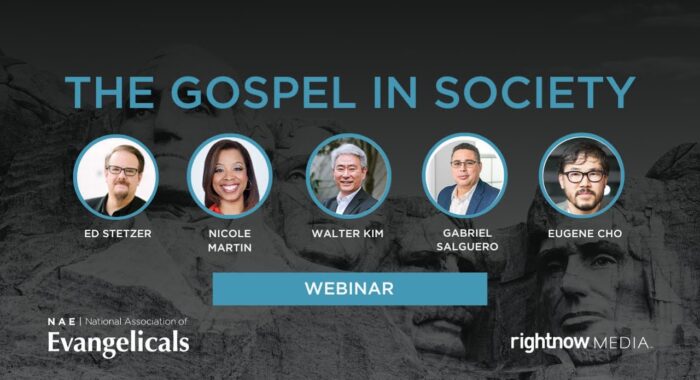Never has there been a more critical or opportune time to share the wisdom of God with others. People know (perhaps now fear) that all is not right with the world, yet few know the Christian wisdom that offers both profound hope and superior ways of thinking than the contemporary secular, “spiritual” and political frameworks. Sharing God’s wisdom gives people an expanded vision and hope for new ways of thinking.
To share God’s wisdom in this way, we first must be aware of the major worldviews that are dominant in our time, which are primarily held unconsciously. Once aware of these, we can discern their consequences on our culture, friends, and even ourselves. Today’s major worldviews outside of the Christian perspective include material/naturalism, secular humanism and pantheism/spirituality. While there is always some overlap, the Christian worldview is wholly unique, complete, accurate and life giving. Christianity offers a “higher rationality” without the fallacies and/or omissions of other worldviews.
In his book, “Foolishness to the Greeks,” theologian Lesslie Newbigin described the superiority of Christianity in this way: “Though the Christian worldview can in no way be reached by any logical step from the axioms of [the other worldviews], nevertheless the Christian worldview does offer a wider rationality that embraces and does not contradict the rationality of [these other worldviews].” C.S. Lewis aptly described Christ’s higher rationality in an appendix titled, “On the Words ‘Spirit’ and ‘Spiritual’”: “Man is a tower in which the different floors can hardly be reached from one another, but all can be reached from the top.”
Material and Naturalists
To the materialists all that exists in the natural and human world, including human consciousness, love, trust and religious belief, is ultimately reducible to matter, energy, chemistry and physical laws. This is obviously a faith statement, because there is simply no way for science to prove that all that exists are natural phenomena since the accepted methodology of science begins only after the identification of natural phenomena and thus can only state facts about those observations. A materialist will not believe in miracles or assign any “spiritual” meanings to ideas or actions. The Judeo-Christian critique of material-naturalism is not a critique of science but of scientism, the insistence that science is the only source of knowledge about reality and that reality can be entirely reducible to material. All scientists are not materialists.
All truths cannot be measured solely with numbers. Numerical analyses of human conditions alone are rarely sufficient. For example, seeing COVID-19 statistics we know something about the whole story of deaths from the virus. But other conditions in which these deaths occurred are important variables that transcend the statistics. For example, we do not yet know (and may never know) the effects of separating loved ones from one another, or the effects of the paralyzing fear that has been produced in many people. Biblically, we are commanded, “Do not fear, it only leads to evil” (Psalm 37:8).
Secular Humanists
The largest group of non-believers are generally secular humanists who hold that humans are now able to analyze and work out problems from a solely humanistic standpoint. The single best visual picture of secular humanism was a cartoon published in the Los Angeles Times the day after the famous existential philosopher Jean-Paul Sartre died. Paul Conrad drew Sartre in the form of a statue bent over chiseling himself out of stone; he had almost reached his feet. Carved at the base of the statue was Sartre’s most famous quote: “Man makes himself.”
Many secular humanists are simply uninterested in God and believe the Christian story is just another story among many made up for a particular historical time. Essentially, all secular humanists would hold that religious worldviews are either wrong, unnecessary or private. Thus, religious beliefs should not be allowed into the public square; that is, they are not candidates for true knowledge.
The defining tenet of secular humanism is the belief that human reason is sufficiently reliable to guide the course of our lives — individually and collectively — without any consideration of divine authority, which is a priori rejected. To them, God is simply a social construct made by people within the context of one’s culture, language and desires. Regardless of increasing evidence to the contrary, some secular humanists are optimistic about our abilities as humans in community to come to consensus on civic and moral norms.
However, today humanism has gone from a modern perspective to a post-modern one, with even less ability or desire to find common ground. For example, critical theory challenges straightforward thinking claiming that we should reverse or ignore standard concepts such as good and evil, and seek to reverse their meanings with preference to the lesser acknowledged one. Many of today’s conflicts emerge from this theory and understandings of “social justice.” Interestingly, the Bible never uses this phrase. Instead, the Hebrew word, tzadik, translated “justice and righteousness,” indicates that in order to have one, you must have the other. One without the other creates ground for constant conflict, left and right. Here again, the words left and right appear 14 times in the Bible, and we are always instructed to avoid left and right. Without a common moral plumb line, people will always believe radically different things unmitigated by true reason.
Pantheisms: Spiritual but Not Religious
Alongside these secular worldviews sits an amorphous “spiritual” worldview, a kind of replacement religion where humans try to cooperate with and/or even control “spirits.” According to Pew Research Center, in the United States, 43 percent of 30–49 year-olds hold to some of these beliefs, this includes many “tech giants” in our culture. Here again, there is no permanent moral plumb line. Pantheists’ fundamental faith is that there is a spiritual reality that is one with observed natural and human reality. Pantheists achieve various degrees of “spiritual enlightenment” by becoming increasingly one with the ultimate spiritual reality (Nirvana in Buddhism) or by actualizing their god-nature or their real self (Atman in Hinduism) when the soul becomes united to Brahman, the ultimate reality.
Disciplines such as meditation, the study of sacred texts, chants, ceremonies, trances, veneration of deities and other spiritual practices are designed to free us from the ignorance and desire that block our enlightenment. Salvation and enlightenment are solely the responsibility of the individual person. Connecting with the ultimate spiritual reality and becoming enlightened is said to enhance both our human well-being and consciousness and in turn positively affect the world.
The principles of the various pantheist religions morphed when they entered the West; in part, they became less distinct and their practices less demanding. The secular urge and relaxed prosperity of the West made the demanding and distinctive forms less appealing, just as it diluted some Judeo-Christian thought and theology. Most “spiritual but not religious” friends will not be strict Buddhists or Hindus but people simply surfing the spiritual net. Studies have found that this group suffers more depression and addiction than Christians or secularists. The “spiritual but not religious” group are in desperate need of Christ. One advantage is that they do believe in spiritual reality, though they may have been in some dangerous “spiritual places.”
The reality of spiritual transactions is one of the primary principles shared by Judeo-Christianity and pantheism; however, this reality is very distinct in pantheism. One of the clearest differences is that all desire is considered evil in pantheism. Christians understand there are good and evil desires. To know God and to imitate Christ should be our highest desire. The ultimate difference between the pantheist worldview and monotheism is that there is a personal all-knowing God behind all things — physical, spiritual and social. To pantheists “divine spirit” is believed to be an impersonal animating force coexisting with all things. Like all worldviews, these metaphysical presuppositions are not subject to scientific verification; they constitute the faith of pantheism. For “pantheists of all types” spiritual growth is largely the work of the individual through mastering the many techniques, versus simply knowing and honoring a singular God, imitating Christ, and discerning the Holy Spirit.
Discerning With Love
If we want to love our neighbors, we must discern their current worldviews and their most important concerns and needs. Then we can come alongside as a friend and gradually but persistently articulate in the context of their lives and current beliefs the “higher rationality” of Christendom. It has no equal.
This article originally appeared in Evangelicals magazine.
Editor’s Note of Correction:
The printed version of Evangelicals magazine Vol. 7 No. 1, page 19 incorrectly states “According to Pew Research Center, in The United States, 3 percent of 30–49 year-olds hold to some of these beliefs…” The correct stat is “43 percent of 30–49 year-olds.”
Mary Poplin is a professor in the School of Educational Studies at Claremont Graduate University. Poplin began her career as a public school teacher and classroom researcher. Her research today is focused on highly effective teachers in poor urban schools. Poplin’s work spans K–12 to higher education, and she has served as dean and director of teacher education. In 1996, Poplin worked with Mother Teresa and the Missionaries of Charity in Calcutta. Her book on this experience, “Finding Calcutta,” was published in 2008. Poplin’s recent work includes “Is Reality Secular? Testing the Assumptions of Four Global Worldviews.” Poplin received her B.S. from Midwestern State University, and M.A. and Ph.D. from the University of Texas.




 View All Articles
View All Articles 





























